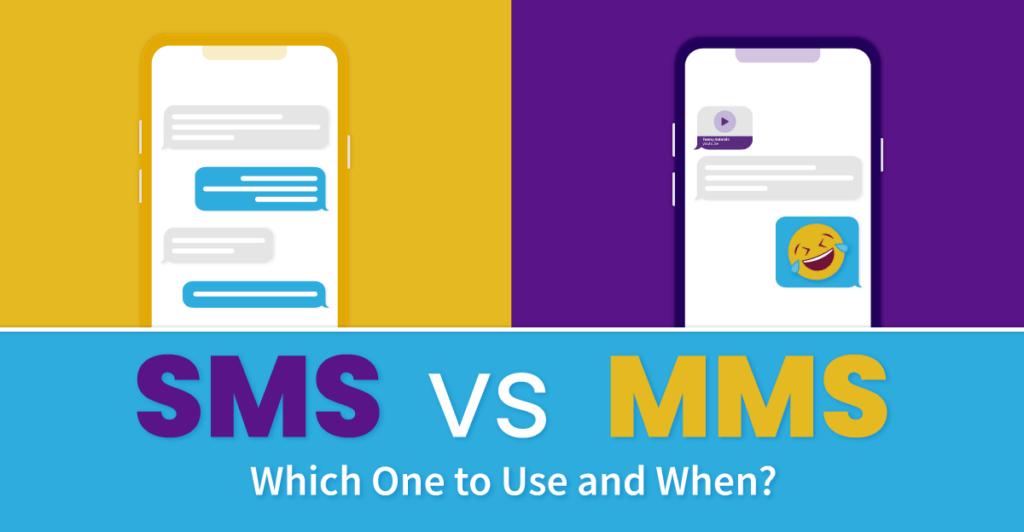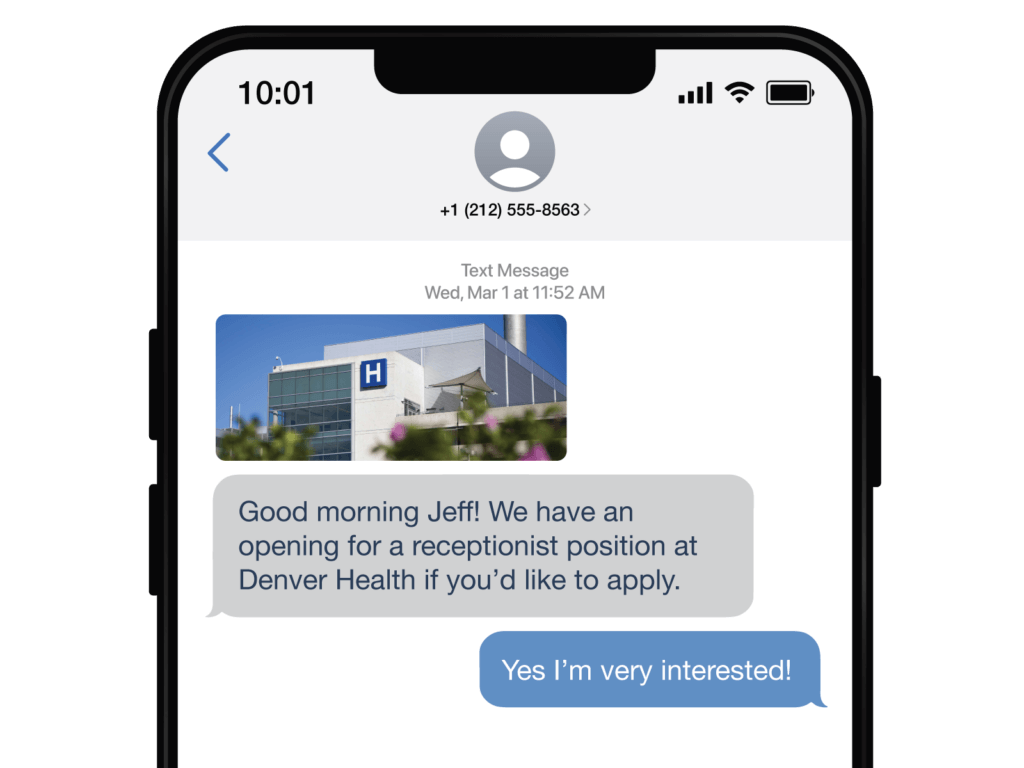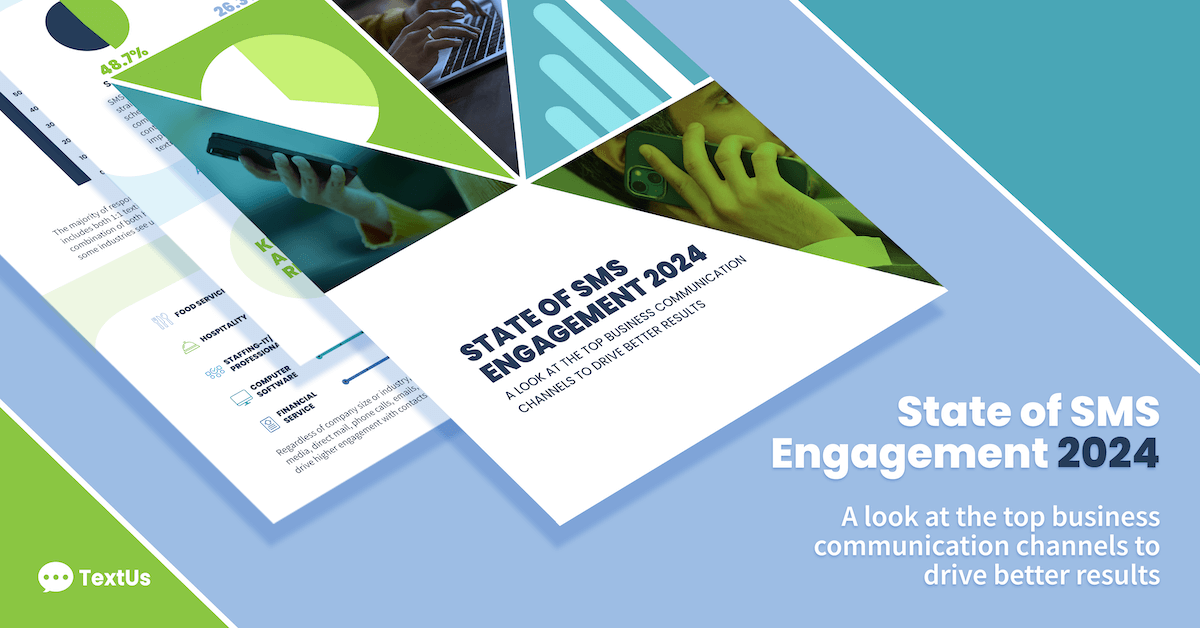SMS vs. MMS: Which One to Use and When?

In today’s digital age, communication is essential, and we have multiple options to interact with friends, family, and consumers. We can use email, phone calls, or messaging apps to connect, but SMS and MMS remain the most popular choices in terms of texting. Both SMS (Short Message Service) and MMS (Multimedia Messaging Service) allow you to send messages, but they have different features, use cases, and benefits. This blog will compare SMS vs. MMS and help you decide which one to use and when.
To start with, SMS stands for Short Message Service, while MMS stands for Multimedia Messaging Service. SMS is a text-only message communication method, which means it is sent and received in plain text format. On the other hand, MMS is a message communication method that allows sending multimedia content like images, videos, audio, and stickers.
SMS
Use Cases for SMS:
SMS is primarily used for sending short, text-based messages that are 160 characters or less. It is ideal for quick and straightforward communication, such as sending reminders, alerts, or notifications. SMS is perfect for sending important or time-sensitive messages, such as flight updates, payment reminders, or appointment confirmations. SMS is also a cost-effective way to communicate with your customers, employees, or friends without requiring an internet connection.
Pros of SMS:
One of the significant advantages of SMS is that it has near-universal compatibility with all mobile devices worldwide. It works on all kinds of phones, from basic flip phones to smartphones, and it doesn’t require a specific app or internet connectivity. SMS is also highly reliable, as it guarantees message delivery and receipt, unlike emails that can end up in spam folders. Moreover, SMS is private and secure, as it is encrypted end-to-end, and only the sender and receiver can access the messages.
Cons of SMS:
The primary limitation of SMS is that it only supports text-based messages, so you cannot send pictures, videos, or audio files. SMS is also not suitable for lengthy conversations, as the 160-character limit can be restrictive and require multiple messages to convey complex ideas. SMS is also vulnerable to spam messages and phishing attacks, as spammers can send unsolicited messages to random numbers and lure people into clicking on malicious links.
MMS
Use Cases for MMS:
MMS, on the other hand, allows you to send multimedia messages that include photos, videos, audio files, and even GIFs. MMS is ideal for sharing visual content that cannot be conveyed in words, such as product images, event invites, or marketing campaigns. MMS is also perfect for personal communication, where you can send pictures or videos of your vacation, food, or pets to your friends and family. MMS can be an effective tool for businesses to showcase their products, services, or promotions and attract customers through multimedia content.
Pros of MMS:
MMS offers several benefits over SMS, such as the ability to send rich media content that enhances the message’s impact and quality. MMS allows you to tell a story, illustrate a point, or evoke an emotion through pictures or videos. MMS also enables you to personalize your messages by adding your branding, logos, or QR codes, making them more memorable and engaging. MMS also supports shared messaging, where you can send the same message to multiple recipients at once, making it ideal for group communication.
Cons of MMS:
The main drawback of MMS is that it requires a data connection and a compatible device to receive and view the multimedia content. Not all phones or carriers may support MMS, and some may charge extra for data usage or multimedia messaging. MMS messages can also be bulky and take longer to send and receive than SMS, especially in areas with slow or poor internet connectivity. Moreover, MMS messages are not always delivered reliably, and some may get lost or delayed due to network issues or technical problems.
In conclusion, SMS and MMS serve different purposes and have their own advantages and disadvantages. While SMS is ideal for short, straightforward messaging, MMS is perfect for sharing multimedia content and enhancing your messaging experience. Therefore, the choice of SMS vs. MMS depends on the message’s nature, audience, and objective. Ultimately, both SMS and MMS are valuable tools for communicating with others and staying connected in our digital world.

Get a TextUs Demo
Learn how thousands of businesses use TextUs everyday to communicate in real-time.





